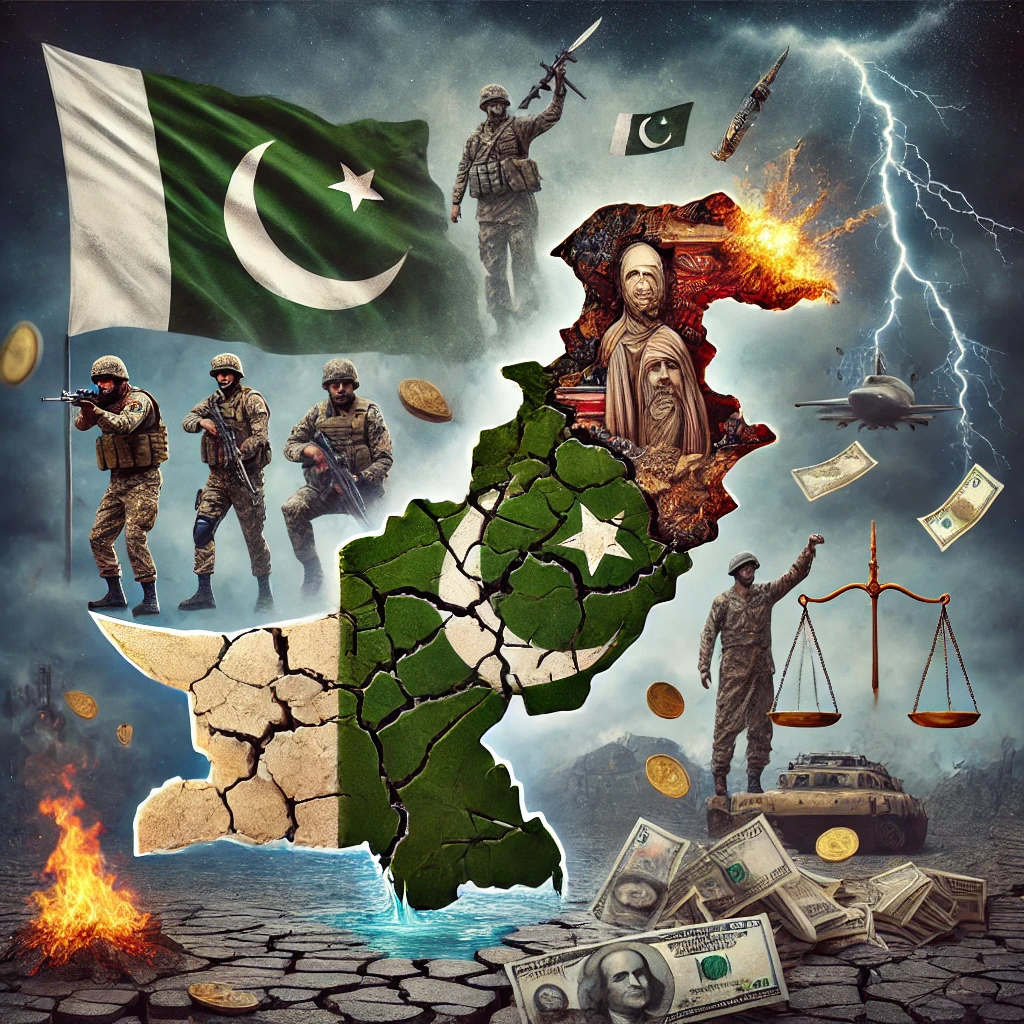Political instability in Pakistan has been a persistent issue since the country’s independence in 1947. A nation of great geopolitical importance, Pakistan’s internal political turmoil has impacted its economic development, security, and social fabric. The cyclical nature of instability in Pakistan stems from various factors, including frequent changes in government, military interventions, weak governance, and socio-economic challenges. Understanding the roots of this instability and its consequences is key to recognizing the complexities of Pakistan’s political landscape.
Historical Context
Pakistan’s political instability can be traced back to its early years. The nation was born from the partition of British India, and its initial years were marked by challenges in unifying diverse regions and populations. The assassination of Pakistan’s first Prime Minister, Liaquat Ali Khan, in 1951 set a tone of instability for the future. Since then, Pakistan has oscillated between periods of civilian rule and military dictatorships, with military coups in 1958, 1977, and 1999 shaping the political landscape.
Military Interventions
A significant factor in Pakistan’s instability has been the military’s recurrent role in governance. Military rule has historically occurred when civilian governments were perceived as corrupt or ineffective, as seen under leaders like General Ayub Khan, General Zia-ul-Haq, and General Pervez Musharraf. While military regimes have often brought a temporary sense of order, they have also undermined democratic institutions, leaving a legacy of weakened political structures.
Frequent military takeovers disrupted the democratic process, leading to political parties being sidelined and civilian governments struggling to establish legitimacy. This back-and-forth between civilian and military rule has stunted the growth of stable political institutions.
Weak Governance and Corruption
One of the core issues contributing to Pakistan’s political instability is weak governance. Successive governments have faced accusations of corruption, nepotism, and inefficiency. Political leaders often fail to deliver on promises of economic development, security, and social reform, eroding public trust in democratic institutions. Corruption scandals, such as those involving former Prime Ministers Nawaz Sharif and Benazir Bhutto, have further discredited the political elite and created a vacuum in leadership.
This environment of weak governance makes it difficult for any political party to establish long-term stability. Short-lived coalitions, frequent elections, and infighting among political elites are common, preventing a consistent policy direction.
Ethnic and Regional Tensions
Pakistan’s political instability is also exacerbated by ethnic and regional divides. The country is home to various ethnic groups, including Punjabis, Pashtuns, Sindhis, Baloch, and Mohajirs, each with its own distinct identity and political demands. Regional political movements, such as those in Balochistan and Sindh, often challenge the central government’s authority, sometimes leading to violent conflict.
These ethnic and regional tensions have historically been exploited by political parties and outside actors, further deepening the divide between the federal government and the provinces. As a result, political consensus becomes difficult to achieve, and instability persists.
The Role of Religious Extremism
Another destabilizing factor is the rise of religious extremism. Pakistan has struggled with the presence of extremist groups, some of which were initially supported or tolerated by the state as part of its regional security strategy, particularly in relation to Afghanistan. Over time, however, these groups turned their focus inward, contributing to domestic violence and political unrest.
The rise of extremist ideologies has not only affected the security situation but has also polarized society. The intersection of politics and religion often leads to divisive narratives, making it difficult to foster national unity.
Economic Consequences
Political instability has had far-reaching effects on Pakistan’s economy. Uncertainty in governance has discouraged foreign investment, weakened investor confidence, and led to inconsistent economic policies. With frequent changes in leadership, economic reforms are often delayed or reversed, resulting in slow economic growth.
Additionally, Pakistan’s dependence on foreign aid and loans from international institutions like the IMF has increased, contributing to a cycle of debt and economic dependency. The lack of political stability has also meant that long-term development goals, such as poverty reduction and infrastructure development, are often sidelined.
Consequences for Democracy
Despite its turbulent history, Pakistan has managed to maintain some semblance of democratic governance, particularly in recent years. However, political instability has weakened the foundations of democracy. Voter disenfranchisement, manipulation of electoral processes, and political violence have hindered the growth of a truly representative system.
Civil-military relations remain a critical issue, with the military continuing to exert influence over foreign policy and national security matters, even under civilian governments. This undermines the authority of elected officials and creates a dual power structure that fuels further instability.
Looking Ahead
Addressing political instability in Pakistan requires a multi-faceted approach. Strengthening democratic institutions, promoting transparency in governance, and addressing socio-economic inequalities are essential steps. Political leaders must also prioritize national unity over personal gain, working to bridge ethnic and regional divides.
While Pakistan has shown resilience in the face of many challenges, lasting stability will depend on the country’s ability to foster a culture of accountability, inclusivity, and long-term governance. Only by addressing the root causes of its instability can Pakistan hope to achieve sustainable political and economic development.
